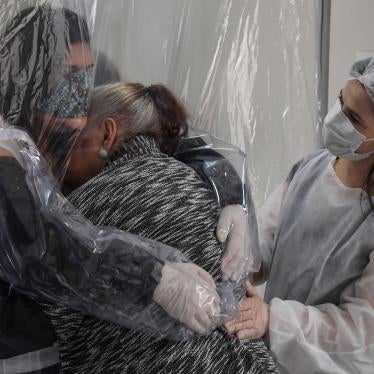In 2006, Human Rights Watch released a report on hospitals in Burundi that detained patients for weeks, and even months, simply because they couldn’t pay their bills. Patients stopped receiving care, got no food, nor often a bed to sleep on while the hospital awaited payment. Guards made sure they were unable to leave the hospital grounds.
While Burundi took some steps toward reform, the practice still goes on in many places. Today in the Lancet Global Health, I write about the practice of hospitals acting as de-facto debtor prisons, highlighting cases from Kenya, Nigeria, Philippines, India, Liberia, and Zimbabwe. In Ghana, Vodaphone has made an annual Valentine’s Day ritual of paying to free detained patients from hospitals.
Esther Ayugi, a woman from northern Uganda, is one victim of this practice. She was detained by a gynecological surgeon after her family was unable to cover US$65 of her $200 bill. My co-authors on the article produced a documentary about Esther’s plight, and that of her son who is also held, to work off the debt and to guard detained patients.
Doctors or hospital administrators who detain patients are acting contrary to medical ethics, such as espoused by the World Medical Association, which obligates physicians to ensure that “The health of my patients will be my first consideration; … I will not use my medical knowledge to violate human rights and civil liberties.”
But to end the detention of patients, the focus has to be broader than on doctors and hospitals. Governments that permit hospitals to detain poor patients are violating their human rights, including the right to freedom from arbitrary detention. They also need to ensure access to care, which could include eliminating user fees or making sure that health insurance is available and affordable to all.
Ending the detention of patients is a simple and achievable objective. In Burundi, after we released our report, the government announced reforms that ended fees for women in labor and children under 5. However, ending detention requires proper planning and increased resources as more people, freed from the fear of being locked up, seek care. As the United Nations focuses on new sustainable development goals, transforming hospitals from debtor prisons back to healthcare centers would be a concrete first step in making universal health care more than a lofty ideal.








